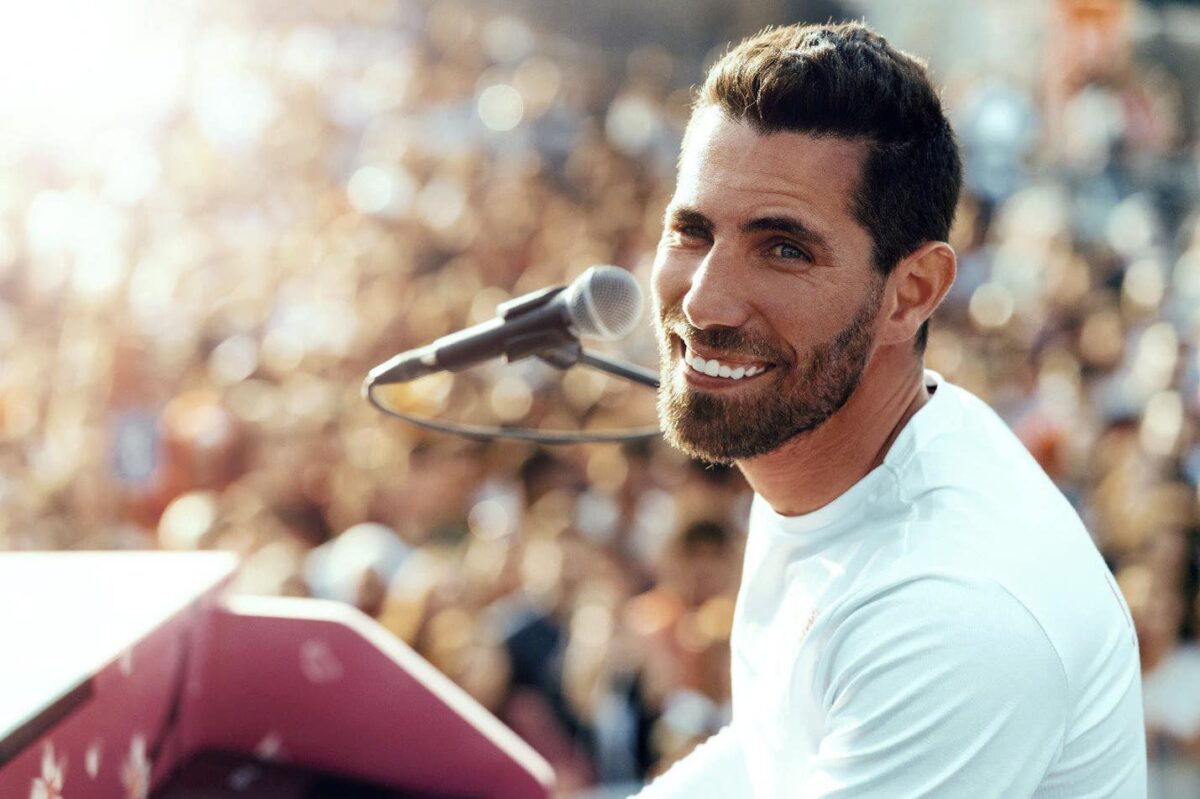If you’ve been following the news at all over the last few weeks, you’ll know all about the escalation of the Israel-Palestine conflict. Tensions started to simmer early on in May with protests against the expulsion of four Palestinian families from Sheikh Jarrah. That was followed by a crackdown on protestors at Al-Aqsa Mosque. The situation continued to escalate when Hamas fired rockets into Israel, and Israel, in turn, retaliated with fire for 11 days. As you’re reading this, I know you have opinions, and they’re probably STRONG opinions. But to be totally clear, that’s not what this post is going to be about.
This post is going to be about the people in and around Israel who have used music as a vehicle to transcend politics and bring people together. Not about rockets and whose rockets we like more. We’ve seen enough of that.
Embed from Getty ImagesUsing Music to Bring People Together
Music has always been used to foster peace in times of conflict, and the situation in Israel is no exception. With that in mind, entire organizations have come into existence with the specific objective of harnessing the social impact of music. One example is Heartbeat, an organization that brings together Israeli and Palestinian youth musicians to “… build critical understanding, develop creative nonviolent tools for social change, and amplify their voices to influence the world around them.”
You might be interested in: The Role that System of a Down Played in the Armenia-Azerbaijan Conflict
Taking that a step further is Koolulam, a mass singing initiative that scales the social impact of music by reaching thousands of people at a time. The initiative is essentially a massive sing-along that gathers thousands of people to sing together in an effort to cultivate a sense of unity, commonality, and shared experience. Unsurprisingly, the idea for Koolulam was inspired by the ongoing conflict in Israel. “The impetus was to bring Israelis of all backgrounds together, regardless of their political views or affiliations,” says Michal Shahaf Shneiderman, one of the co-founders.
Of course, this approach music and impact goes far beyond grassroots projects.
Who Is Aziz Maraka?
Aziz Maraka is an artist who plays the piano and the ukulele, and composes music in a style he calls Razz, a unique fusion of rock, Arab, and jazz music. He released his first solo album in 2008, and since then, has played shows all over the world. His genre-defying music, however, goes beyond metaphor. Maraka was born in Tunisia to a Palestinian father and a Lebanese mother, and was raised in Jordan before moving to the United States to study music. You can imagine why the concept of territories and borders would be frustrating for a person like Maraka, whose upbringing was shaped by a mosaic of experiences, and it’s easy to see how those experiences may have influenced his overarching goals as an artist.
How a Concert in Israel Changed the Narrative
This past December, Maraka played to an audience of about 5,000 people in the Israeli Arab town of Kafr Yasif. At a glance, this might seem like an innocent gig, but this move was in complete defiance of the BDS, an international boycott, divestment, and sanctions movement against Israel. By playing in the Israeli town, Maraka was accused of showing “support for the occupation.” The concert was followed with calls to boycott the artist, despite local fans expressing their gratitude and appreciation, adding that from their point of view, staying connected to the broader Arab world was more important than BDS, which leads to separation and isolation. Maraka’s mission in all of this is clear: to use music to bridge political divide.
“I really think that music can break down the walls of politics. BDS people, as well as politicians and activists, have an interest in keeping me – and us, the artists – paralyzed and intimidated. I’m not willing to play into their hands. I want to appear anywhere people will hear me. Not out of some arrogant attitude of a singer and fans, but out of a feeling of a real mission of the music. I performed although I knew what was going to happen and I did it only for the good of my Arab audience and not for anything else.”
Aziz Maraka, via Haaretz
No matter where you sit on the side of a conflict, in the end, we all want the same things. Peace, safety, security, and some sense of belonging. We know that bombs and rockets rarely solve our problems (do they ever?) But with time and patience, music and art can play a pivotal role in shaping and changing once long-held beliefs. For as long as artists like Maraka continue to persevere, we’ll continue to move towards a more open, pluralistic, and understanding collective.

One Response